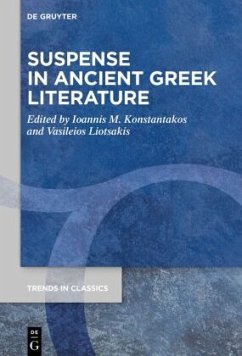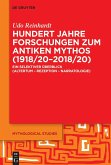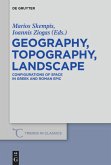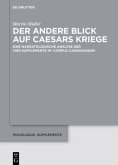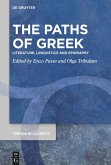The use of suspense in ancient literature attracts increasing attention in modern scholarship, but hitherto there has been no comprehensive work analysing the techniques of suspense through the various genres of the Classical literary canon. This volume aspires to fill such a gap, exploring the phenomenon of suspense in the earliest narrative writings of the western world, the literature of the ancient Greeks. The individual chapters focus on a wide range of poetic and prose genres (epic, drama, historiography, oratory, novel, and works of literary criticism) and examine the means by which ancient authors elicited emotions of tense expectation and fearful anticipation for the outcome of the story, the development of the plot, or the characters' fate. A variety of theoretical tools, from narratology and performance studies to psychological and cognitive approaches, are exploited to study the operation of suspense in the works under discussion. Suspenseful effects are analysed in adouble perspective, both in terms of the artifices employed by authors and with regard to the responses and experiences of the audience. The volume will be useful to classical scholars, narratologists, and literary historians and theorists.

